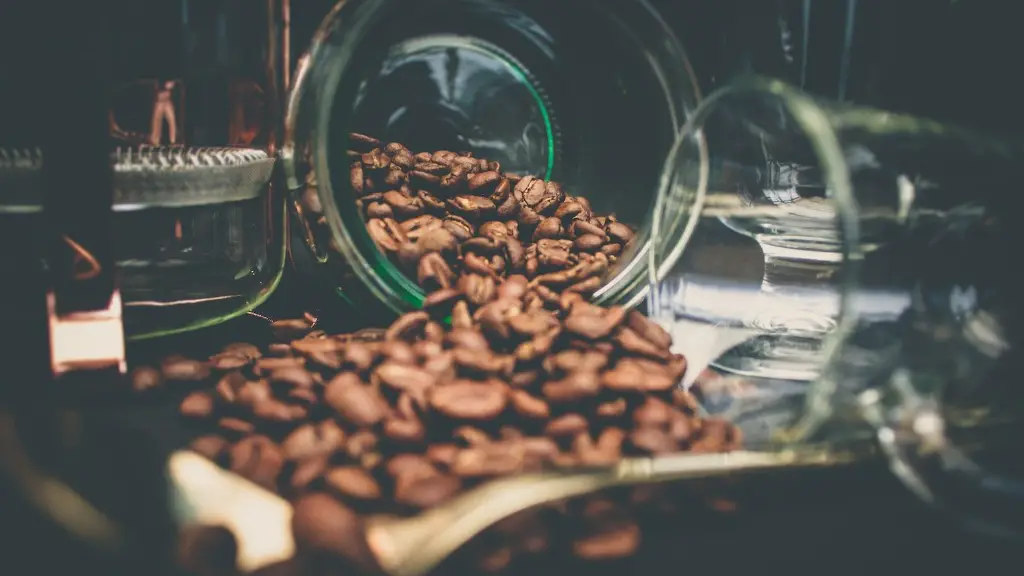Drinking coffee on an empty stomach is something that most people engage in. Many are not aware of the potential risks of doing so, but there is mounting evidence that this habit might be more harmful than beneficial.Coffee is one of the most popular beverages in the world, providing an important source of caffeine which has numerous health benefits – reduced risk of cardiovascular disease, diabetes, and neurological diseases, improved physical and mental performance, as well as cancer-fighting properties.
Many of us recognize that coffee is a stimulant and can have various beneficial effects, but what few understand is the potential for adverse effects when it is consumed on an empty stomach. Coffee can have an acidifying effect on the body, which can cause discomfort if it is not balanced with an alkaline diet. It can also increase stomach acid production and increase the risk of heartburn and indigestion. According to a recent study from the University of Toronto, drinking coffee on an empty stomach can interfere with digestion and interfere with the absorption process, which can lead to nutrient deficiencies and poor absorption of vitamins and minerals. Additionally, caffeine can trigger anxiety in some people and make them feel more stressed out than usual.
However, there is some conflicting evidence when it comes to the effects of drinking coffee on an empty stomach. For instance, a study published in the Journal of the International Society of Sports Nutrition suggests that drinking coffee before exercising can improve physical performance. And Harvard Health has reported that adding a small meal such as a toast with some peanut butter or a slice of whole grain bread can often offset the adverse effects of drinking coffee on an empty stomach.
Experts agree that it is best to judge for yourself when it comes to drinking coffee on an empty stomach as it varies from person to person. If you’re someone who is already prone to digestive issues, it might be best to avoid it altogether. Additionally, if you can handle it, adding some food to your morning routine can help reduce the acidifying effect of the caffeine and make the experience a bit more comfortable. Lastly, it seems that it’s particularly important to monitor your caffeine intake while engaging in this habit, as excessive amounts can lead to complications.
The Effects of Coffee On Your Metabolism
One of the most common questions around drinking coffee on an empty stomach is what it does to your metabolism. Experts have found that drinking caffeinated beverages on an empty stomach can have a thermogenic effect, increasing energy expenditure, hence boosting metabolism.This is because caffeine works as a stimulant in the body and tells the metabolism to step up and crank out more energy. While this does temporarily increase the metabolism, drinking coffee on an empty stomach might not be the wisest choice for long-term health.Studies have also shown that caffeine consumption leads to increased blood sugar levels, which can deplete energy and diminish cognitive performance.
The Role of Hydration
When engaging in the habit of drinking coffee on an empty stomach, it is essential to hydrate. Caffeine is a diuretic, meaning it can cause you to lose fluids. This can lead to dehydration, a common side effect of drinking coffee on an empty stomach. Additionally, dehydration can also cause headaches, nausea, and muscle cramps, so it is important to remember to drink plenty of water throughout the day.The best way to avoid the risks associated with dehydration is to follow a healthy daily hydration plan and to make sure to drink water throughout the day.
Coffee Alternatives
If drinking coffee on an empty stomach is something you’ve been doing for a while and you have started to experience some of the adverse side effects, it may be time for you to consider some coffee alternatives. Consider switching to a lighter tea such as green or white tea, as well as adding natural foods such as chia seeds, nuts, and fresh fruits for a more balanced and nutritional breakfast. Herbal teas such as rooibos and chamomile are also excellent choices for hydration and contain less caffeine so they won’t stimulate the body as much.
The Benefits of Drinking Coffee In Moderation
Despite the potential risks associated with drinking coffee on an empty stomach, there are also some benefits. Coffee is loaded with antioxidants, polyphenols, and other beneficial nutrients which can help reduce inflammation and boost the immune system. Additionally, the caffeine can provide a jolt of energy and focus – two valuable resources in this day and age.However, it is important to note that these benefits can only be enjoyed when caffeine is consumed in moderation. Too much caffeine can result in a crash, irritability, and difficulty sleeping, which is why it is best to stick within the recommended 400mg maximum per day.
The Physiological Effects of Coffee on The Body
The effects of drinking coffee on an empty stomach are highly individual – what works for one person might not work for another.However, there are some common physiological effects that can be experienced after ingesting caffeine. After drinking coffee, the body releases adrenaline, which increases the heart rate and can cause feelings of anxiety. The release of adrenaline causes blood sugar levels to rise and triggers the release of fatty acids which can lead to higher levels of stress hormones.When these hormones are released, they can cause the body to enter a fight or flight mode which can lead to increased tension and fatigue.
How To Monitor Caffeine Intake
To avoid any of the adverse effects associated with drinking coffee on an empty stomach, it is important to monitor your caffeine intake. Start by keeping track of how much coffee you are consuming and try to avoid drinking it on an empty stomach. Additionally, make sure to keep your caffeine intake balanced by drinking plenty of water and adding some food to your diet.Lastly, if you can, try limiting your intake to 400mg of caffeine or less per day – any more could have a negative impact on your health.
Potential Health Risks of Drinking Coffee On An Empty Stomach
The potential health risks of drinking coffee on an empty stomach should also not be taken lightly. Caffeine can increase the acidity in the stomach and can cause complications such as heartburn and indigestion. Additionally, consuming large amounts of caffeine can lead to an interrupted sleep cycle and can lead to exhaustion, anxiety, and irritability.Also, caffeine acts as a diuretic and can lead to dehydration if it is not balanced out with proper hydration.
Other Ways To Get Energy In The Morning
If drinking coffee on an empty stomach is something that you’re trying to avoid, there are several other ways to get energy in the morning. Consider switching to a lighter tea such as green or white tea, as well as adding natural foods such as chia seeds, nuts, and fresh fruits for a more balanced and nutritious breakfast. Exercise is another excellent way to get the body energized and ready to take on the day – just make sure to warm up and stretch beforehand to avoid any potential injury. Lastly, regulating your sleep routine is essential – make sure you get plenty of sleep and avoid caffeine late in the day to help ensure quality rest.



